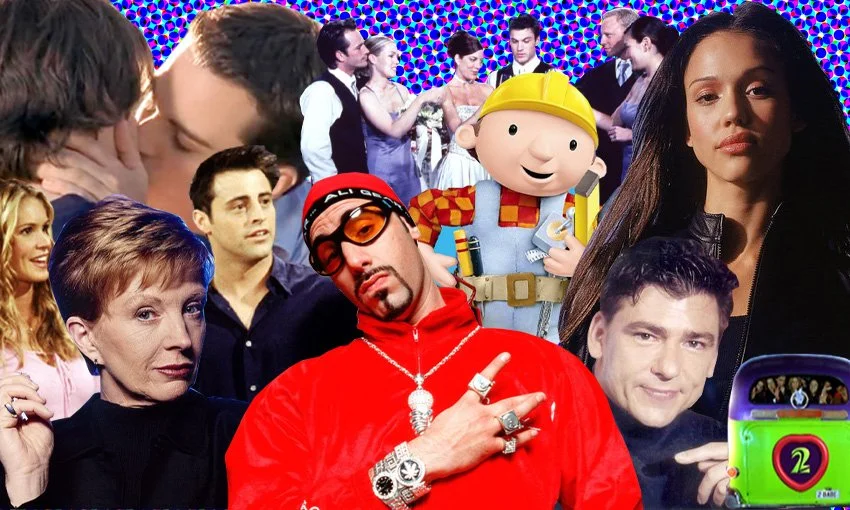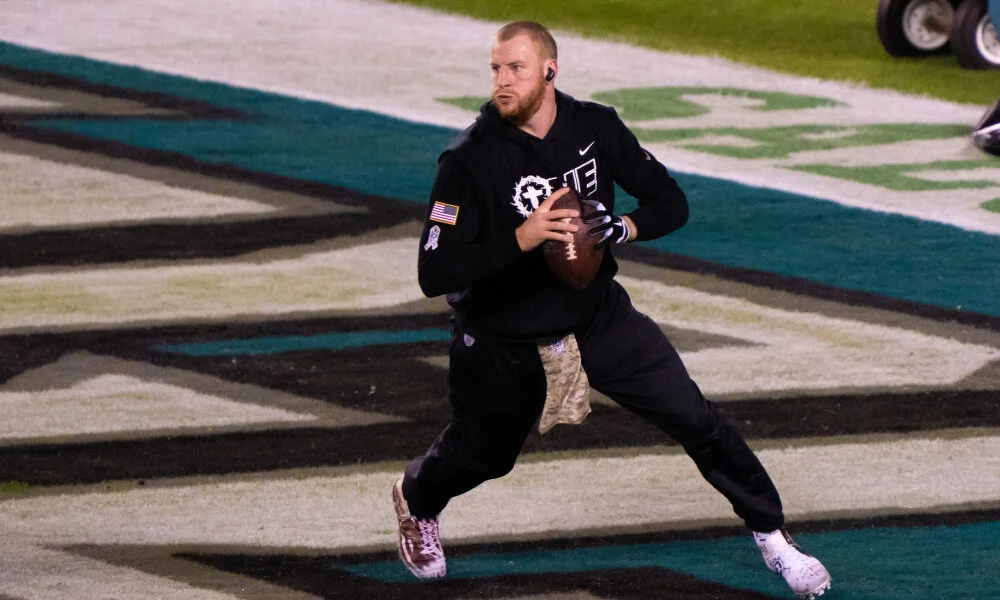Protect Bubba Wallace
Your support is paramount to our plans to scale our efforts, which include a new children’s book series, three new novels, more life giving merch, and providing free therapy for those in crisis. We can’t do that without your support. Our newest book, I’m NOT Okay, Thanks for Asking is available here. We have tons of merch for purchase here. If those don’t float your boat, please consider making a contribution here. Thank you.
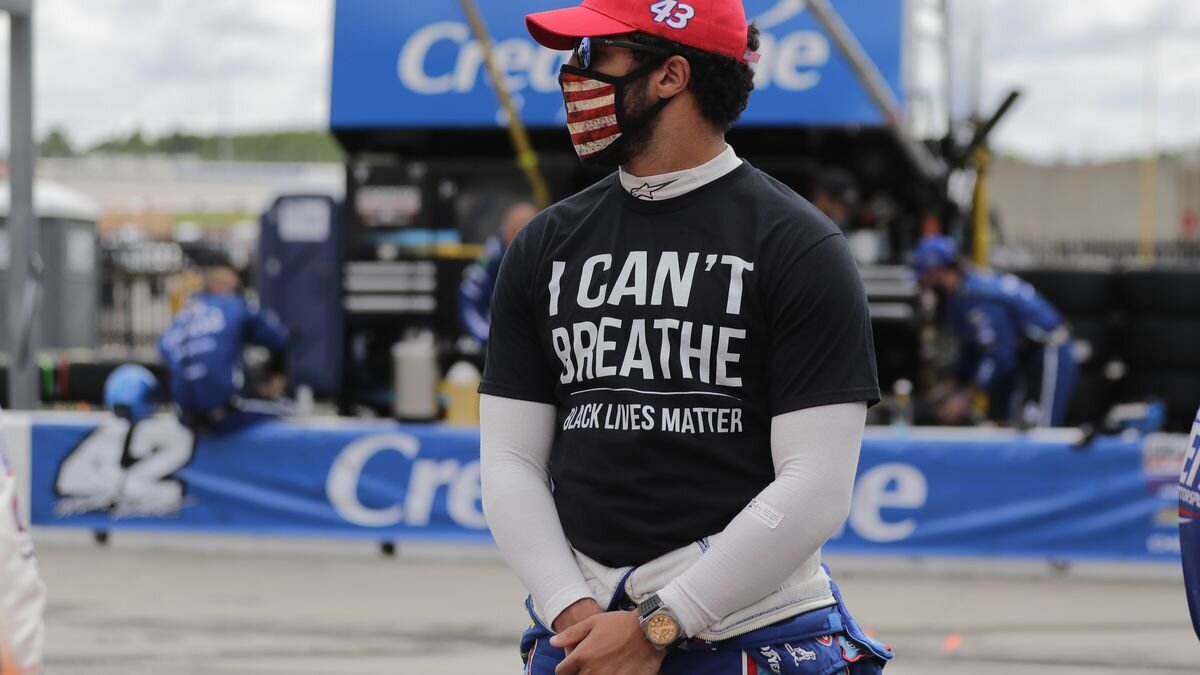
(AP Photo/Brynn Anderson)
Of all the major sports, NASCAR is most synonymous with the South. Even if you think the best college football is played in the South, there’s no other sport that seems so regionally concentrated.
You also probably instantly think of White people when you hear about NASCAR, too.
With that general backdrop, many people across the country have been taken aback by the activism of NASCAR cup series driver Bubba Wallace. Wallace, whose full name is Darrell Wallace Jr., is one of the most successful Black drivers in a sport long known for only having White men. In 2018, Wallace was the first Black driver at the Daytona 500, NASCAR’s version of the Super Bowl, since 1969. (He finished second.) He’s also the first Black driver to race full time on stock car racing’s highest stage since 1971.
As countercultural movements across the United States and the World have sprung up, Wallace began speaking out and publicly proclaimed his support of Black Lives Matter. Days later, he went even further, calling on NASCAR to ban the confederate flag from its events. NASCAR had previously failed to implement such a ban in 2015, but days after Wallace’s highly publicized activism, NASCAR complied.
Over the weekend, it was reported that a noose had been found in Wallace’s garage ahead of the GEICO 500 near Talladega, Alabama.
We should not for one second understate what Wallace is doing, nor should we ignore the efforts being undertaken by NASCAR as a whole. Wallace responded via twitter, stating:
“Over the last several weeks, I have been overwhelmed by the support from people across the NASCAR industry including other drivers and tea members in the garage,” he said. “Together, our sport has made a commitment to driving real change and championing a community that is accepting and welcoming of everyone. Nothing is more important and we will not be deterred by the reprehensible actions of those who seek to spread hate.”
For many corporations, and especially for other major sports leagues, supporting the fight for racial justice is more about finances than morality. Black people drive culture in America, and when enough of us decide to no longer and/or limit our engagement with a particular medium of entertainment, it’ll be felt on the bottom line. But if any sport could reasonably survive with little support from Black people, it would be NASCAR.
Contrary to popular opinion, there are plenty of Black people that not only watch NASCAR, but absolutely love it. My brother is one of them. He will sit and watch every second of a 500-lap race and speak in detail about the fluctuation of the leadership board. I know names like Joey Lagano, Rusty Wallace, and Ryan Newman because of him. In fact, I took my little brother to a NASCAR race in Charlotte a few years ago. Officially, the race takes place in Kannapolis, North Carolina. The demand for hotel rooms was so high that we ended up staying almost 40 minutes away from the track. It was an amazing experience I’ll detail in a later post, and my brother loved it. It was one of the best weekends of my life.
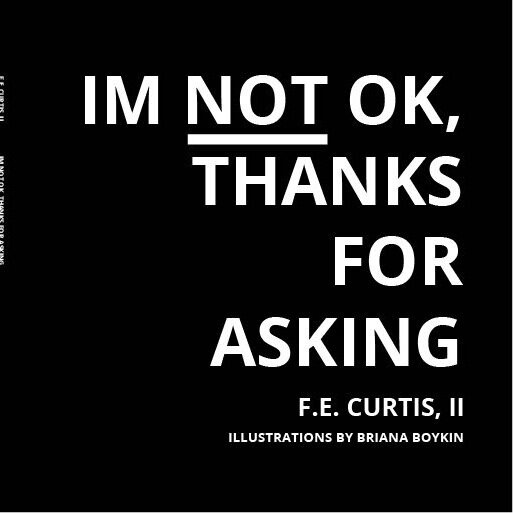
All that said, NASCAR is still closely associated with Whites in the South for a reason, and this close proximity with a somewhat monolithic fan base can often lead to the perceived adaptation of racism and bias. Yet the sport has displayed a commitment to diversifying both its driver pool and fan base in the last decade.
NASCAR commissioner John Middlebrooks took over that post in 2010, while President Steve Phelps took over in 2014. Since then, the league undertook the aforementioned push to ban the confederate flag. They’ve also instituted a “Drive for Diversity” program, which aims to provide pathways for Black, Latinx and other people of color to become NASCAR drivers, pit workers, and executives. After all, it’s not just the drivers. In 2018, Brennan Davis became the first Black woman to work in the pit at the Daytona 500.
NASCAR recognizes its rather homogenous fanbase, and though they haven’t had much success expanding it thus far, a genuine effort is being made. For now, even if you don’t find much appeal in watching the sport, there’s plenty efficacy in rooting for Wallace, Davis and NASCAR athletes alike from a distance.
The Coen brothers’ 2009 exploration of a modern-day Job calamity is vibrant and comedic with just the right amount of despair.
Big government media want you to believe that 2016 is the year things started to unravel, but that would be too good to true… and just plain wrong
What happens when something designed for intimacy and pleasure transforms itself into an on-demand tunnel for deviation and violence? And how do we change it?
What Roger Goodell and the NFL decide to do about the sexual predator now playing quarterback for the Cleveland Browns may be the most impactful statement to date
James has always been a fierce advocate for social justice and progress, but can someone that has reaped the most from unfettered capitalism really advocate for the masses?
Richard Linklater’s latest film isn’t necessarily a coming of age story, but an animated time machine to 1960’s White America. At least it’s done well.
1 in 6 boys will be sexually abused by the age of 18. Rather than calling it rape, society teaches us that our violation is a badge of honor. Men, it's time to acknowledge our #MeToo experiences – and heal from them.
Green Bay Packers quarterback Aaron Rodgers joins the list of diva signal callers looking to jump ship after getting guaranteed money with no material changes within the organization. What’s next in the Packers-Rodgers saga?
Kelly and Fred are the GM’s of every NFL franchise picking in the top ten. What should each team do in tonight’s NFL draft? You’ve come to the right place to find out.
We discuss the Texans' quarterback legal troubles, implore men to be better, and rank our top players in Thursday's draft.
On this episode of All 22, it’s all about the quarterback in Thursday’s draft. Kelly and I rank our top available quarterbacks, from Trevor Lawrence and Zach Wilson to Sam Ehlinger and Kellen Mond.
What should the Ravens have done with Orlando Brown Jr.?
Carson Wentz is traded to Indy, DeShaun Watson isn’t going anywhere, and what’s going on with Jimmy G? We take a look at every team’s quarterback situation on this episode of All 22.
A quick review of college football signing day, plus a Week 15 NFL preview, including the Saints-Chiefs, Eagles-Cardinals, and Browns-Giants.
Lamar Jackson does crazy things on Monday night, the College Football Playoff pictures comes into focus, and a preview of championship Saturday.
Fred Curtis and Kelly Dawsey rap on Wednesday’s afternoon football between the Ravens and Steelers, discuss whether or not the Steelers can be perfect and the Jets can be winless, rank our Heisman contenders and offer analysis on this week’s biggest NFL games.
On this episode of All 22, Alabama’s sustained dominance, a brief discussion on the once great programs of CFB, Ohio State’s not-enough-games problem, the Titans and Falcons win big, and the best head coach and GM openings this coming NFL offseason.
